Werner Büttner Poor Souls
Marlborough is pleased to present Poor Souls by legendary German artist Werner Büttner. Poor Souls marks his first New York exhibition since 1986, including new collage and painting that showcase a wide-range of intelligence and cunningly dark but empathic humor.
Painted with a breezy confidence that complicates their gravity, these canvases tackle weighty issues of history, philosophy, mythology, grief and mourning. This is to say that there is real empathy beneath the surface, and that the paintings are packed with humanity. With the courage and wherewithal to incorporate a diversity of subjects, from Winston Churchill to a bewigged dachshund, Büttner scrambles hierarchies provoking a pleasant disequilibrium. A moody palette dominates generally, and surprising bands of drizzled black or white pigment often disrupt the naturalistic depicted space with flung drips of gestural abstraction—telltale ejaculatory “signatures” to further destabilize the surface reading.
Leading with language, the paintings’ unforgettable titles and the frequent presence of text/image combinations, perpetuate a casually pedagogic atmosphere befitting a long-time art professor. If the lessons are obliquely proffered and veer toward the gnomic, they are all the more powerful for it. The learned poetics are well-earned from decades in the “desert of freedom”—the unforgiving artistic terrain explored in the early 1980s by Büttner (and his Junge Wilde comrades such as Martin Kippenberger) through abandoning the compass of conventional taste and technique. In the current anything-goes climate of contemporary art production, it can be difficult to comprehend the break from tradition that this stylistic rejection ushered in, but we are living with its effects.
Büttner’s paintings bear the great responsibility that this freedom confers. His commitment to it is uninterrupted by a fixed style or consistent position, though the paintings are recognizably his. Their consistency is borne of an irreverence in tone, ethical point of view and a meticulously disguised complexity. In uncertain times, we need a sage to plumb the depths of our collective psyche connecting us to an intellectual and personal history that help make sense of an irrational present. Werner Büttner is just the person for the job.
Werner Büttner was born in Jena, Germany, in 1954. He moved to Berlin in 1968, where he studied law at the Freie Universität Berlin. In 1979 he exhibited at Kippenberger’s Büro project as part of the renowned exhibition ‘Elend’, and in 1982 was part of the Martin-Gropius-Bau exhibition ‘Zeitgeist’, which was considered a definitive survey of painting at that time. In 2013 the artist was the subject of a major retrospective, ‘Werner Büttner: Gemeine Wahrheiten’ [Common Truths], at ZKM, Karlsruhe, which travelled to the Weserburg Museum of Contemporary Art, Bremen, in 2014. Hatje Cantz published a major monograph in conjunction with the exhibition. This year two major monographs were published by Black Dog, dedicated to Büttner’s painting and collage respectively, bringing his complex use of language in English for the first time.
Büttner has been a Professor of Painting at the University of Fine Arts of Hamburg since 1989.
-
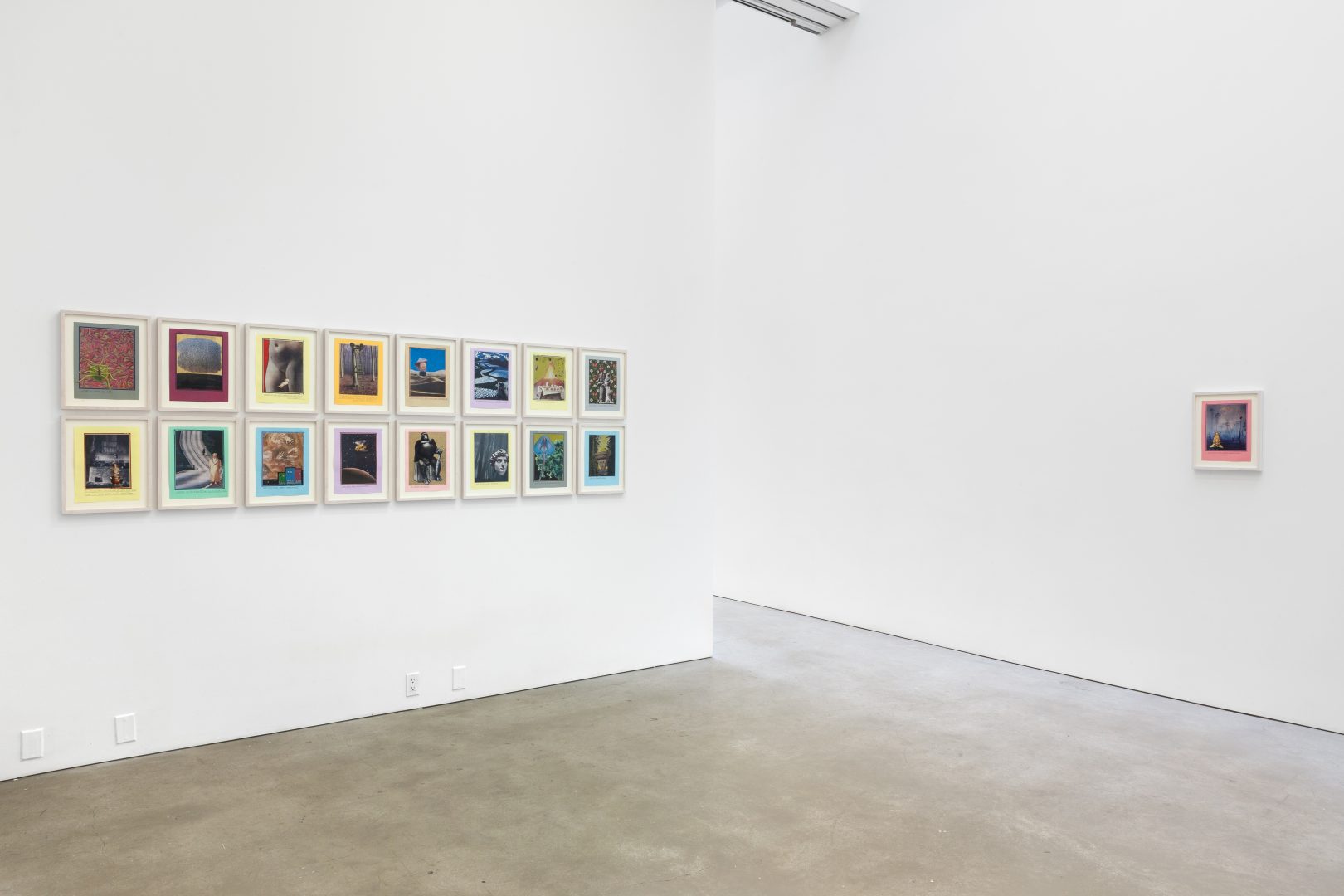
Installation View.
-
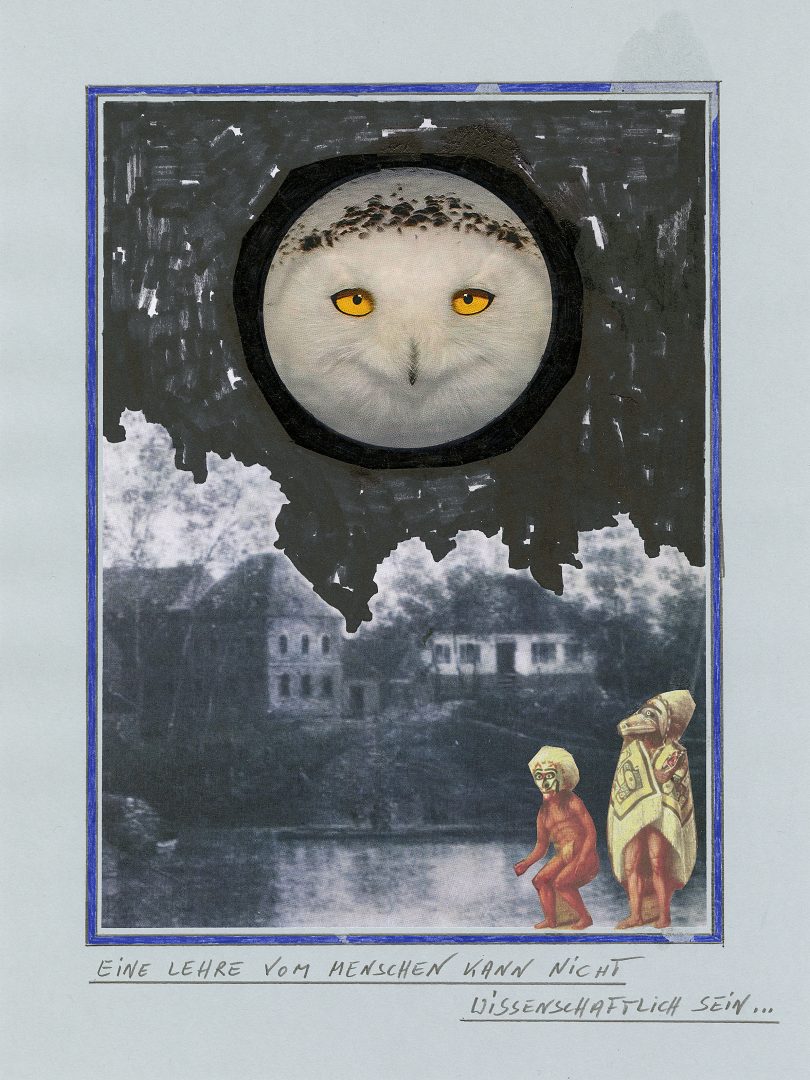
Eine Lehre vom Menschen Kann Nicht Wissenschaftlich Sein... (A Theory of Humanity cannot be Scientific...), 2016, collage, 16 1⁄8 x 13 in.
-
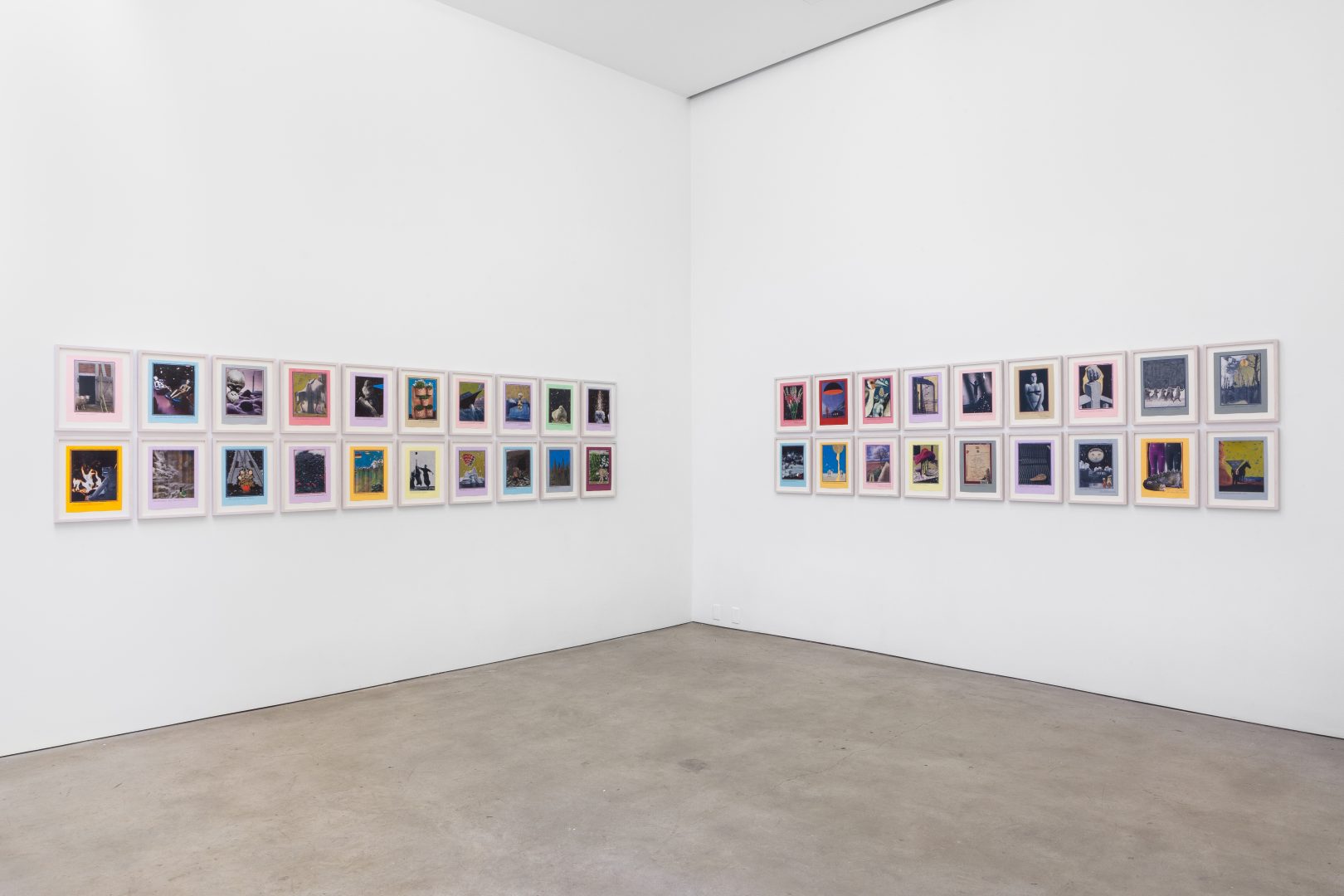
Installation View.
-
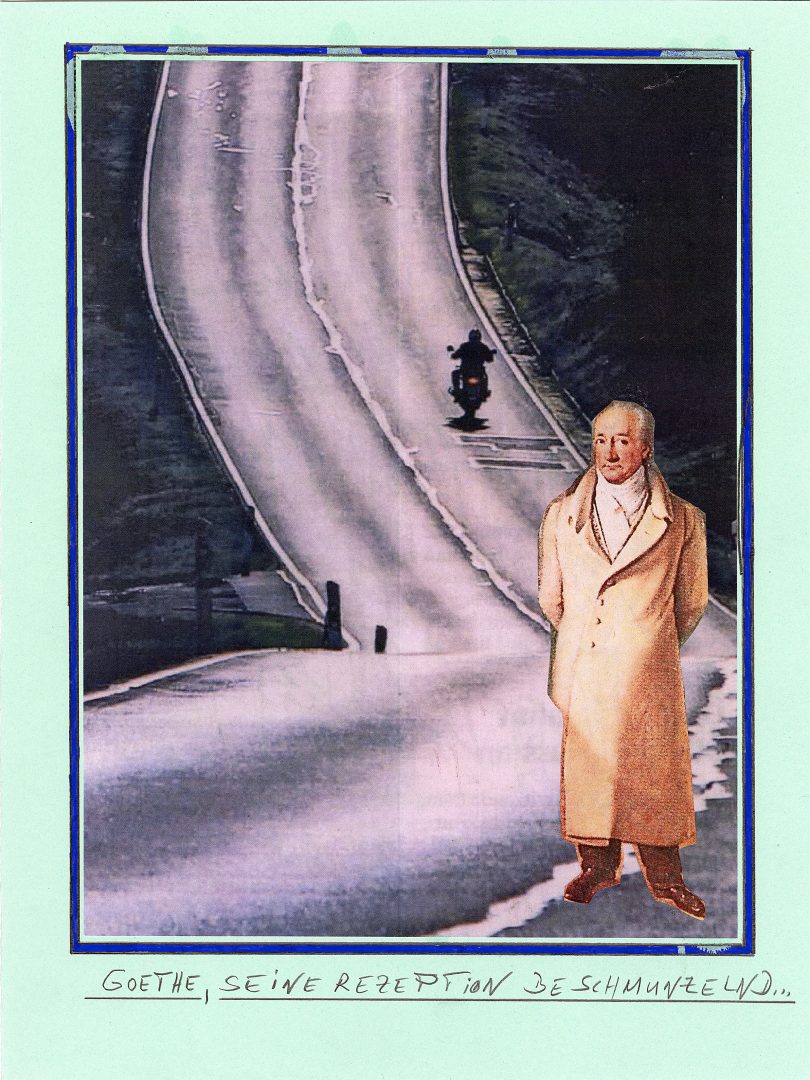
Goethe, Seine Rezeption Beschmunzelnd… (Goethe Smirking About his Reception…), 2015, collage, 16 1⁄8 x 13 in.
-
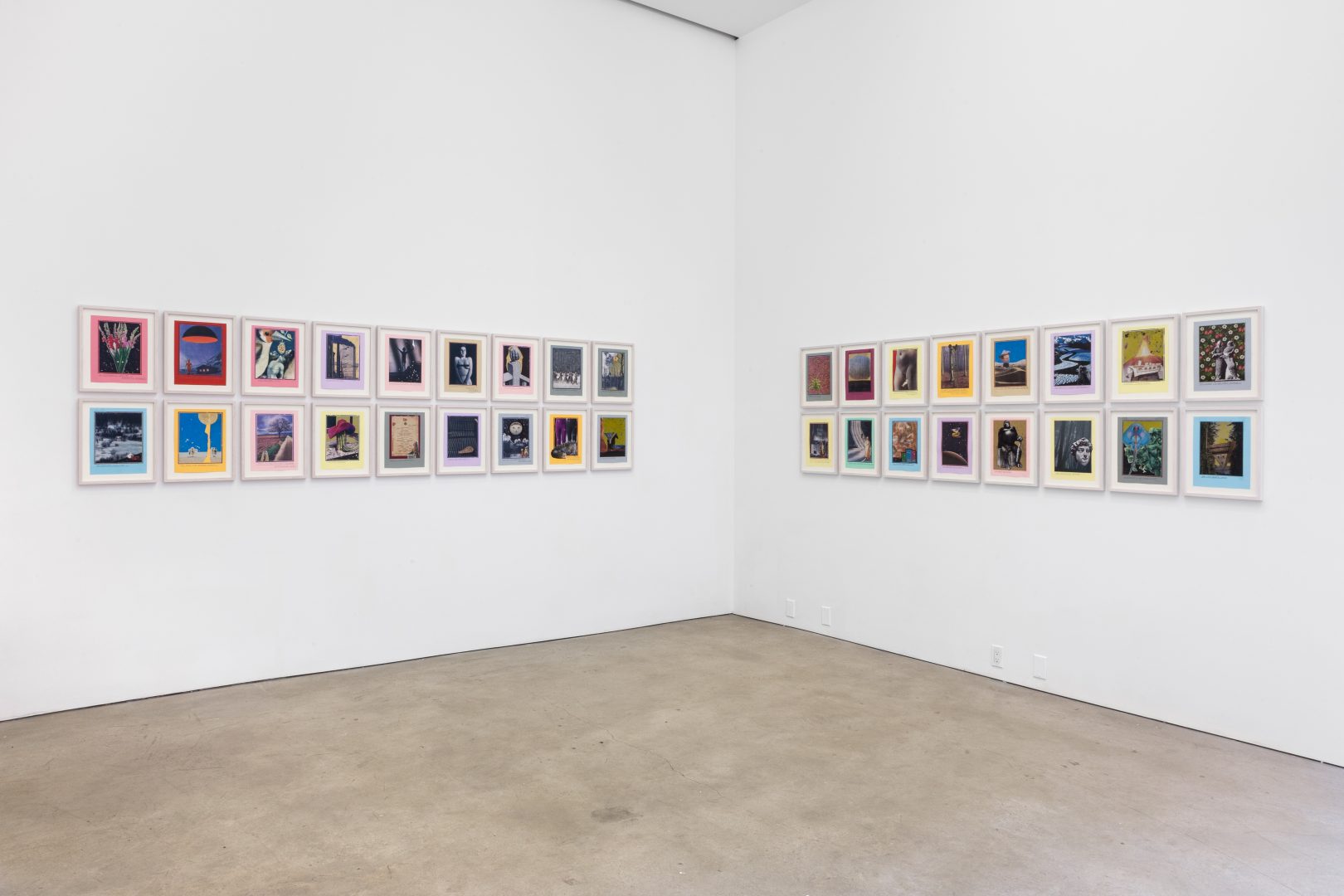
Installation View.